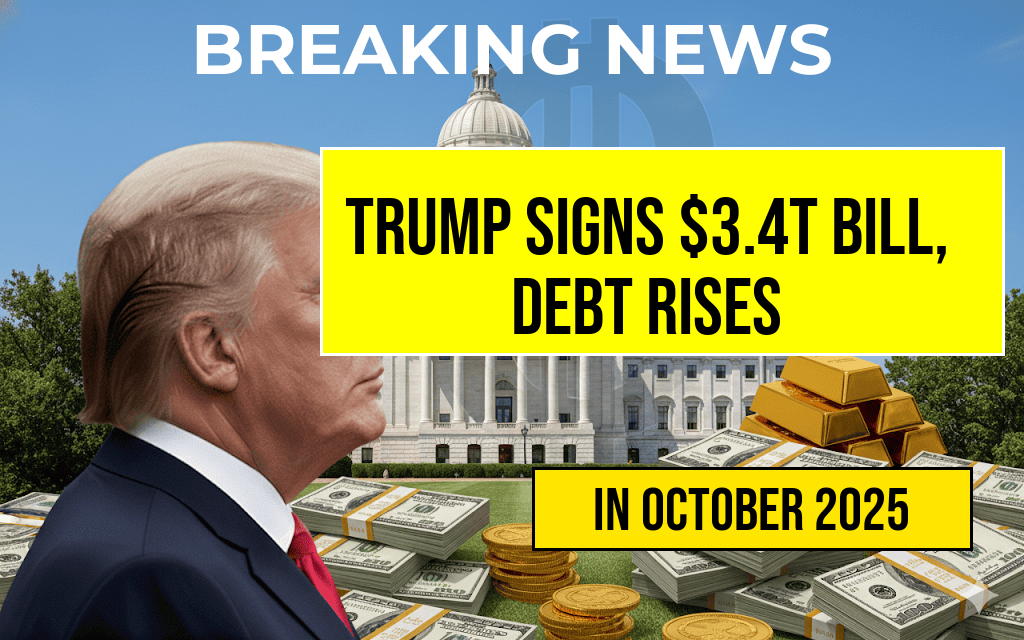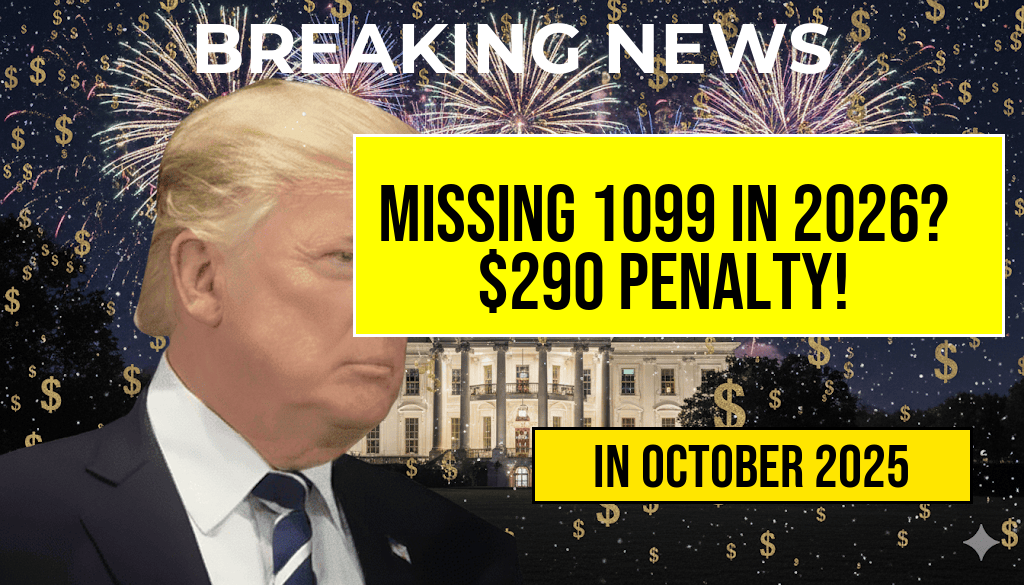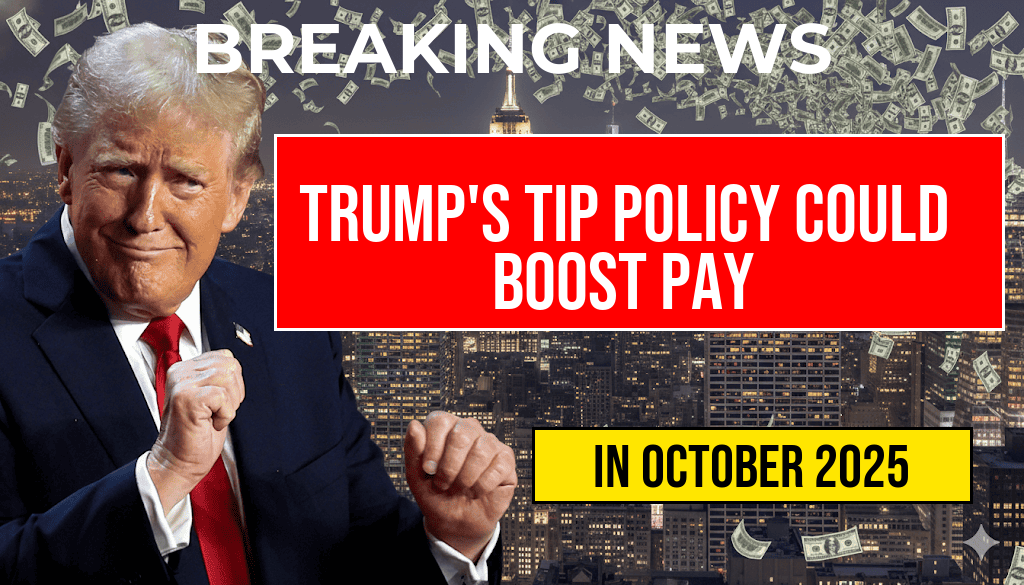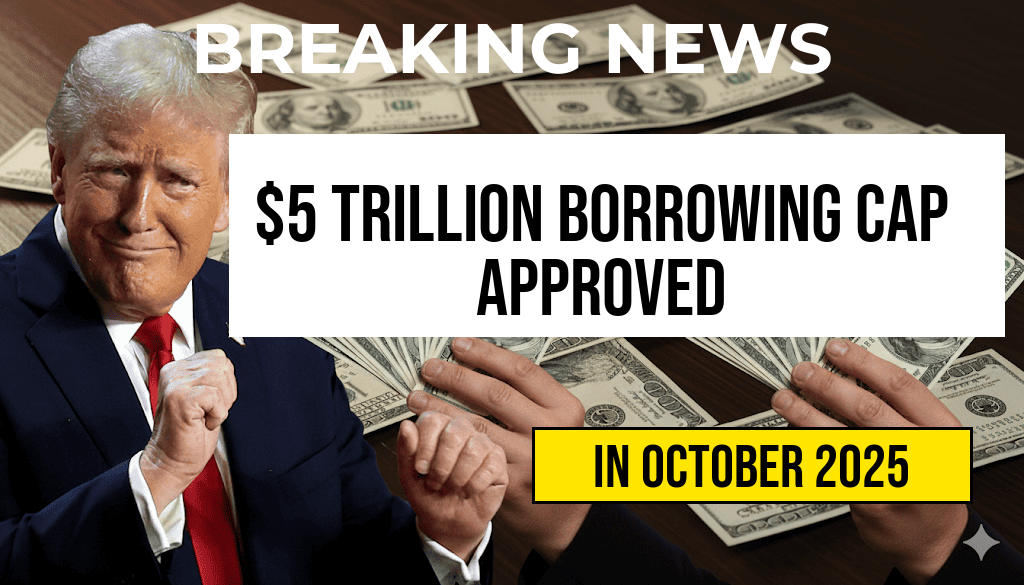In a significant move that is expected to reshape the economic landscape of the United States, former President Donald Trump has signed a controversial $3.4 trillion mega-bill. This legislation, aimed at addressing various national priorities, is projected to increase the national debt by approximately $4 trillion. Amidst concerns about fiscal responsibility, Trump assured that the bill would not impose any taxes on tips, a promise that has sparked both support and criticism across party lines. The newly signed legislation is set to have far-reaching implications for millions of Americans, particularly those in the service industry who rely on tips as a primary source of income.
Key Provisions of the Mega-Bill
The mega-bill encompasses a wide range of funding initiatives designed to stimulate economic growth, improve infrastructure, and support social programs. Some of the notable provisions include:
- Infrastructure Investment: A substantial allocation for repairing and upgrading roads, bridges, and public transportation systems.
- Healthcare Funding: Increased funding for public health initiatives and support for rural healthcare facilities.
- Education Grants: Significant investments in K-12 education and community college funding aimed at enhancing workforce development.
- Climate Change Initiatives: Financial support for renewable energy projects and sustainability programs.
Economic Implications
The impact of the mega-bill on the U.S. economy has become a focal point of debate. Proponents argue that the extensive investments will create jobs and stimulate economic activity, while critics warn of the long-term consequences of increasing the national debt. The $4 trillion debt increase raises concerns about inflation and the burden on future generations. Economists are divided on whether such a large fiscal stimulus is necessary at this juncture, given the current economic recovery post-COVID-19.
Tax on Tips Controversy
One of the most contentious aspects of the bill is Trump’s commitment to not impose taxes on tips, which he argues will protect workers in the hospitality and service sectors. This promise has resonated with many service workers who often depend on tips for their livelihood. However, some critics argue that the decision to exclude tips from taxation could exacerbate issues related to income inequality and limit potential tax revenue that could be used for public services.
Political Reactions
The signing of the mega-bill has elicited a wide range of responses from lawmakers and the public. Supporters of the bill are applauding its focus on job creation and essential services, while opponents view it as an irresponsible expansion of the national debt. Here are some reactions from key political figures:
- Senator Jane Doe (D-CA): “While we support investments in infrastructure, we need to ensure that we are not jeopardizing our fiscal future.”
- Representative John Smith (R-TX): “This bill is a win for the American worker, especially those who rely on tips to make ends meet.”
- Economist Dr. Emily Johnson: “The long-term implications of this debt increase will need careful monitoring as we move forward.”
Public Opinion
Public opinion on the mega-bill is divided. A recent poll indicates that approximately 55% of Americans support the infrastructure and healthcare investments, while 45% express concern over the increased national debt. Many workers in the service industry have voiced their approval of the decision to exempt tips from taxation, viewing it as a protective measure for their earnings.
Future Outlook
The full impact of the $3.4 trillion mega-bill will take time to materialize. As the federal government begins to allocate funds to the various initiatives outlined in the legislation, its effectiveness in addressing economic and social challenges will be closely scrutinized. The ongoing debates about fiscal responsibility and economic growth will continue to shape the political landscape leading up to the next election.
For more detailed information about the economic implications of large-scale federal spending, visit Forbes or explore the analysis provided by Wikipedia.
Frequently Asked Questions
What is the significance of the $3.4 trillion mega-bill signed by Trump?
The $3.4 trillion mega-bill is significant because it represents a major increase in federal spending and is expected to impact the national debt significantly.
How much will the national debt increase due to this bill?
The national debt is projected to increase by $4 trillion as a result of the mega-bill, raising concerns about fiscal responsibility.
Will there be any changes to taxes on tips in this legislation?
No, Trump has promised that there will be no tax on tips as part of this bill, which is a point of interest for many in the service industry.
What are the potential economic impacts of this mega-bill?
The potential economic impacts include increased government spending, which could stimulate growth but also raise concerns about long-term debt sustainability.
Who benefits from the provisions of the $3.4 trillion mega-bill?
The provisions of the mega-bill are expected to benefit various sectors, particularly those relying on government funding, though critics argue it could lead to increased debt burdens for future generations.






